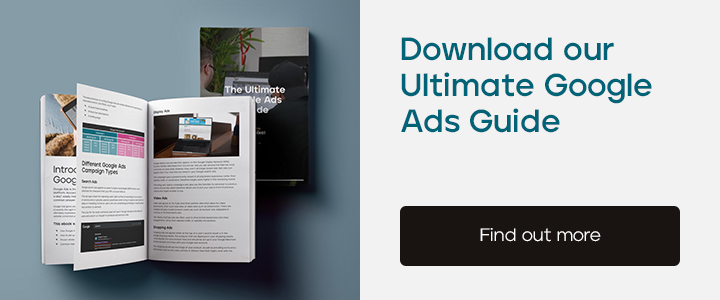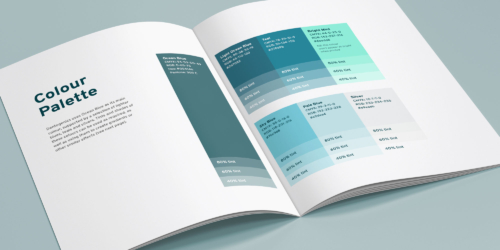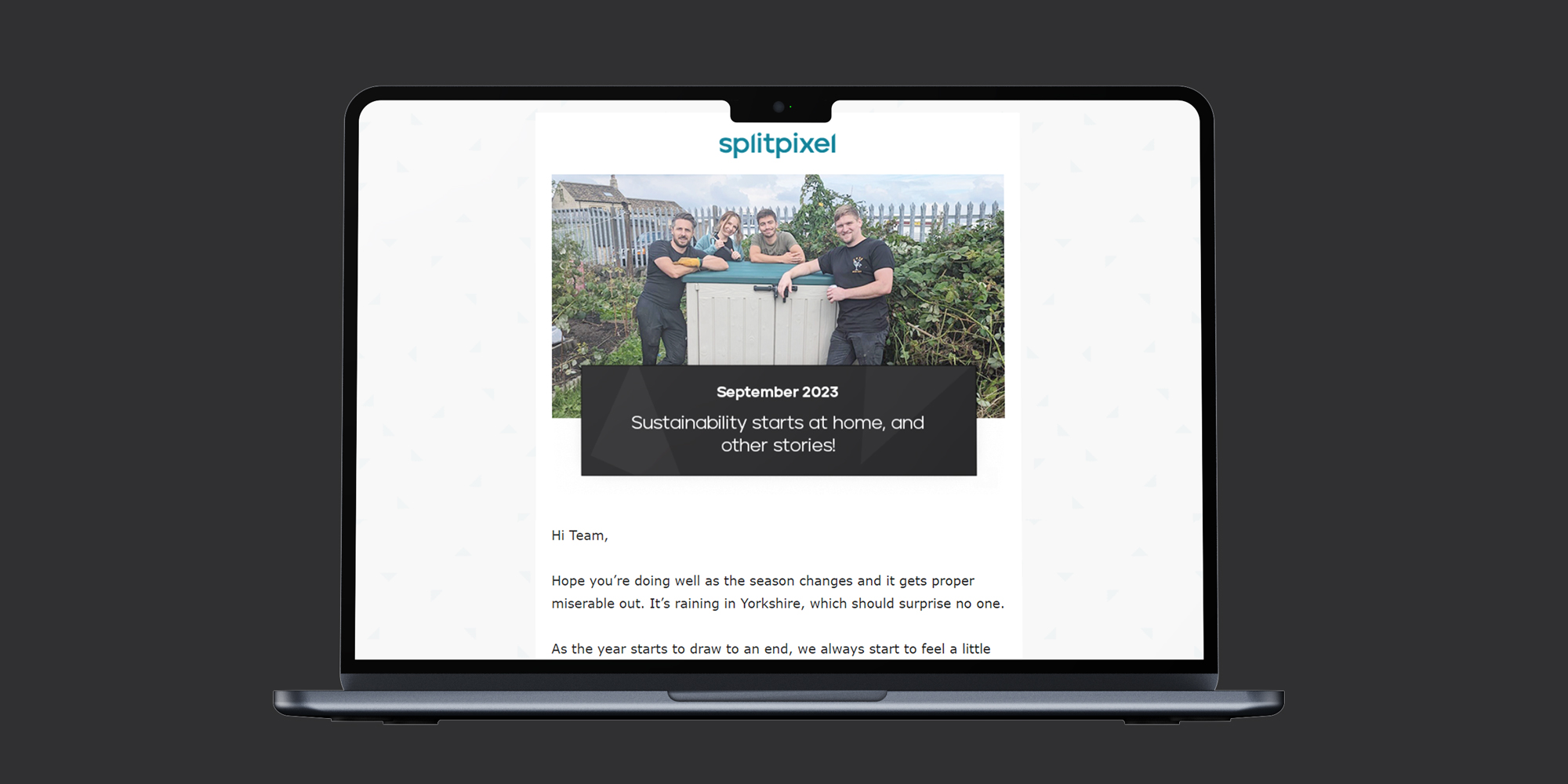Have you noticed a drop in organic clicks, despite increasing your SEO efforts?
You’re not alone! Search behaviours are changing, and they’re doing so rapidly.
First of all, don’t panic. You’re not the only one seeing this trend, and hopefully this article will offer a bit of reassurance and insight into where you should focus your attention.
1. Check your data sources
Depending on where you’re reviewing your data, the numbers may vary. For example, on one of the websites we support, Google Analytics 4 (GA4) reported 247 organic sessions last month, while Google Search Console reported 524 clicks. That’s a big difference!
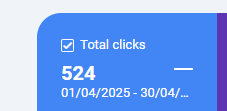

GA4 remains a useful tool, particularly for analysing on-site user behaviour. However, due to various factors such as cookies not being accepted, it can lead to under reported traffic data.
At Splitpixel, we tend to implement Consent Management Platforms (CMPs) such as CookieYes to help manage user consent across our client website builds.
Their documentation explains how adding a complaint cookie banner can cause traffic drops due to consent preferences affecting tracking.
When analysing organic data, we tend to trust Google Search Console more than GA4. It typically gives a more accurate picture of search performance.
So first check: How does your Search Console data compare to your GA4 organic data?
If you haven’t already, we recommend setting up a Search Console account. When adding a property, you can choose between:
- Domain level (requires DNS verification)
- URL prefix level (useful for specific folders such as a blog section)
Ideally, set up domain level tracking as a minimum if possible.
You may want to consider adding specific subfolders of your domain at URL prefix level. For example, if you have a large collection of blogs, by adding your blog subfolder path at URL prefix level, this can help analyse certain areas of your site more efficiently.
2. Don’t just focus on overall website clicks
If your SEO KPIs are based solely on the number of organic clicks, you might be missing the full picture. SEO should focus on driving commercially valuable traffic, not just any traffic.
As counter-intuitive as it sounds, a drop in overall organic clicks doesn’t necessarily mean your SEO isn’t performing well.
Here’s a quick example:
Let’s say last year we received 500 clicks for the keyword ‘What is Google Search Console’ – a top-of-funnel, informational based term. This year, we only received 200.
That’s a drop of 300 clicks.
But these users were unlikely to convert into a customer of a new website. They may have simply found their answer and left our website.
Now, compare that to a bottom-of-funnel term such as ‘web design agency Huddersfield’.
Let’s say last year we received 50 clicks for this term, and this year we received 100 clicks.
That’s a gain of 50 highly valuable clicks.
If we only look at the total clicks, it would be a drop of 250 clicks.
But in reality, we gained increased levels of traffic from users far more likely to convert.
We are likely to drive a much better ROI from the 100 users who have searched for ‘web design agency huddersfield’, than we are from the 200 users who searched for and landed on our site looking for an answer to ‘What is Google Search Console’.
Please note, this isn’t suggesting that top of funnel or informational searches aren’t relevant – they can play an important role in building brand awareness and engaging users early in their sales journey. The point is simply that not all organic traffic carries the same value.
Second check: focus on your sanity, not vanity metrics.
Side note – When reviewing overall clicks in Search Console, treat the overall average position metric across the account with a pinch of salt.
It includes all keywords – from high-intent commercial phrases to low-value informational ones, pretty much any keyword your website ranks for, regardless of relevancy,
The more content you produce, the more keywords you’ll likely rank for, even if some rank very low (e.g. position 80). This can drag down your average position, even if you’re improving for key terms.
Example:

We may not have previously ranked at all for the term ‘what is web design’, but if we now do (at an average position 80), this could bring down our overall account average.
If total clicks are down, don’t assume that your most important keywords are struggling.
Check the performance of individual keywords, especially your commercially valuable ones (e.g. ‘web design agency Huddersfield’ for Splitpixel would signal strong intent).
Are these keywords up or down for clicks?
3. Why have clicks for these terms dropped?
Now that you’ve reviewed the performance of individual keywords, hopefully you’ve seen an increase in clicks for your commercially valuable terms.
If not, it’s time to dig a little deeper. When analysing a keyword, ask yourself: why has it generated fewer clicks?
There are a few common reasons:
1. You’ve dropped in position

If impressions are stable but your ranking has dropped (e.g. from position 2 to 6), your click-through rate (CTR) will naturally fall.
This decline can result from both internal and external factors. A few key areas to investigate:
- Review the search results page: Who is now outranking you, and if so, what are they doing better?
- Check for any core Google algorithm updates. Make sure you’ve not received any penalties from Google.
- Have you taken seasonality into consideration? Be sure to compare similar time periods to account for peaks and lulls and certain times of the year.
- Analyse your content: Is it still relevant and useful for that search query?
- Review the three core pillars of SEO:
On-site SEO (content quality, relevance, freshness, on-page optimisation)
Off-site SEO (backlinks, domain strength, offsite optimisation)
Technical SEO (site speed, crawlability, structured data, etc, technical optimisation.)
2. Impressions have dropped, yet position hasn’t
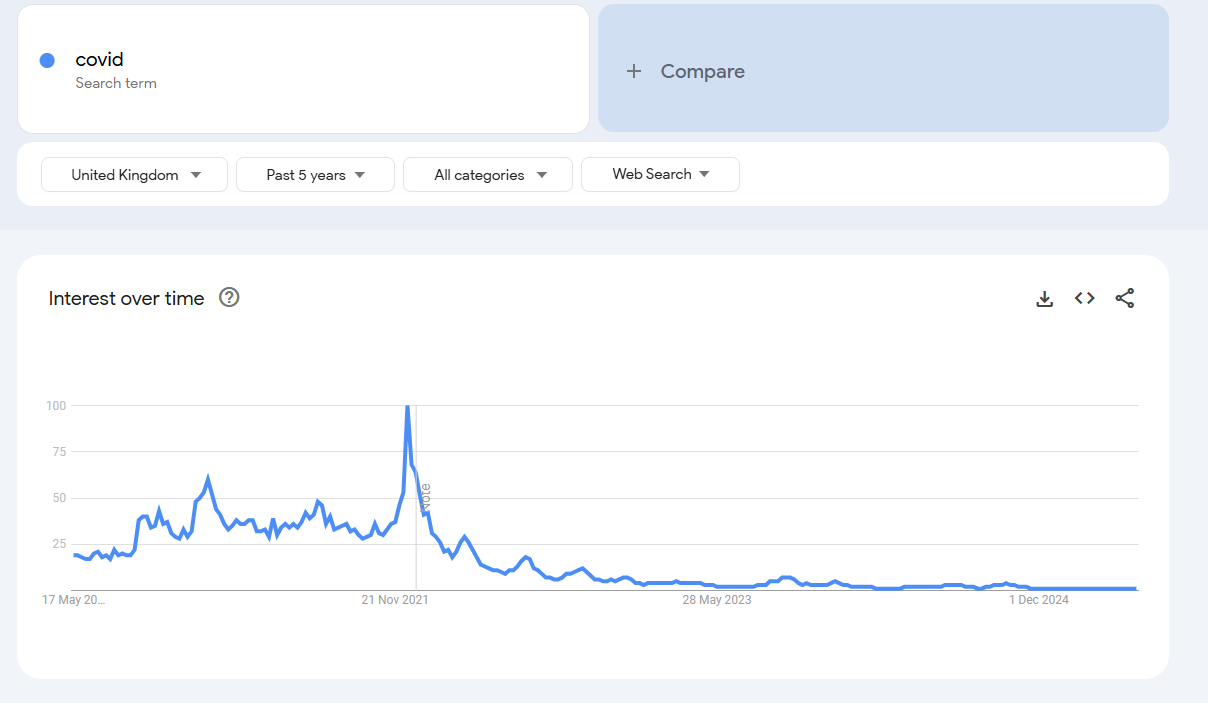
Organic clicks can fall even if your positional ranking improves. We recently analysed branded search terms for a client and found the following:
- The main branded term had 274 fewer clicks year-on-year
- Average position improved for this keyword (1.27 to 1.08)
- However, impressions dropped by over 300
So even with better rankings, it could just be a case that fewer people were searching for the brand name.
That’s why regular keyword research is also important. Search trends change. A keyword popular a few years ago may no longer have the same demand.
A slightly extreme example, but a site ranking number one for ‘Covid’ will likely have seen a huge traffic decline over time even if they remained in position one. Less searches, in most cases will lead to less clicks.
3. The Search Results Page (SERP) has changed
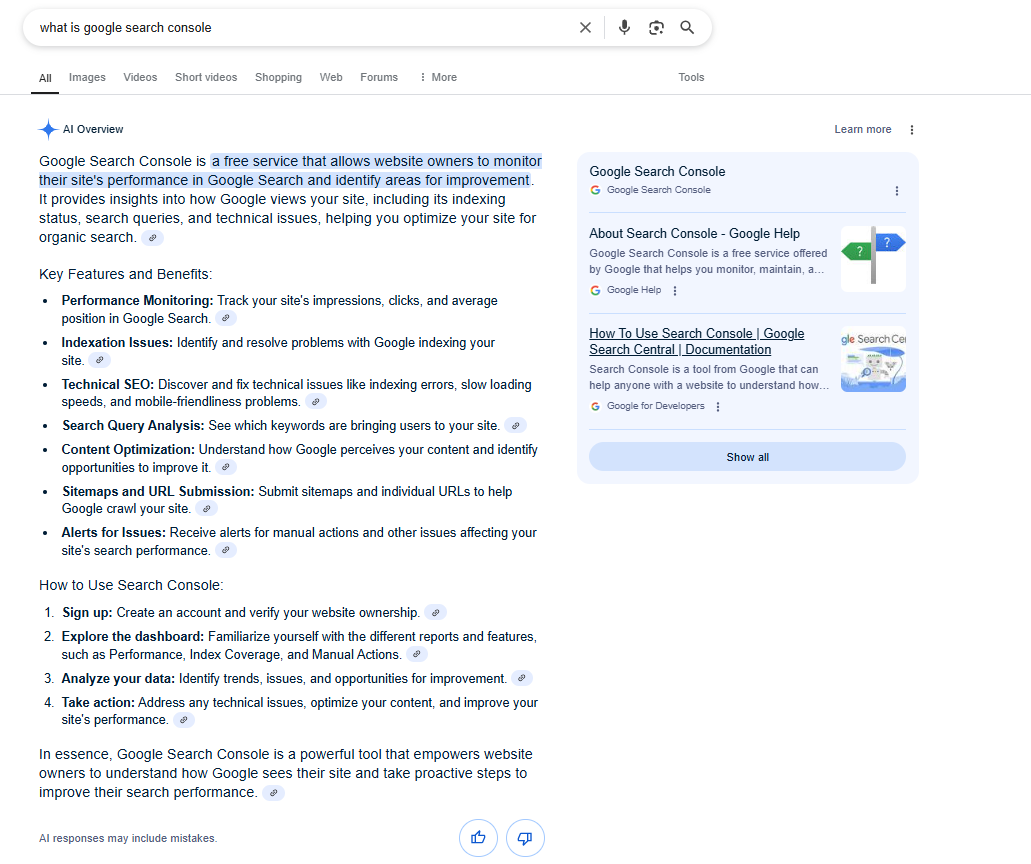
AI Overviews are here.
Whether you embrace AI or not, it’s impacting search behaviour significantly.
Remember the hype around voice search? While that never quite hit the levels some anticipated, I personally feel AI is different and the changes are already starting to have their say.
In August 2024, Google rolled out AI Overviews fully.
A study by Ahrefs found that when AI Overviews were present, CTRs for the top-ranking organic page dropped by 34.5% compared to similar searches without the AI overview.
This will be impacting pretty much all websites.
For one of our clients, one of their broad top-of-funnel queries experienced a rise in impressions, improved keyword positioning (3.23 to 2.46) yet a drop of 34 in clicks year-on-year.
AI is appearing for and answering users searches much more frequently, reducing the need for users to click through to websites to find their information.
A 2024 study by Search Engine Land showed that nearly 60% of Google searches now end without a click.
And with OpenAI now introducing shopping features, it’s likely that AI will also start affecting more bottom-of-funnel queries

Final thoughts
If your organic clicks are down:
- First of all, don’t panic!
- Cross-check both GA4 and Search Console data.
- Analyse individual keyword performance inside Search Console.
- Review clicks, impressions, and positions.
- Consider how AI and changing search behaviours may be impacting your site.
We hope this article has given you a better insight and a few pointers to consider if you’ve found your organic clicks have dropped.
If you’d like more help with your SEO, whether it’s technical, local, or even offsite optimisation, feel free to reach out to the Splitpixel SEO team. We work with clients across a range of industries to drive more high-quality, valuable organic traffic to their websites.

